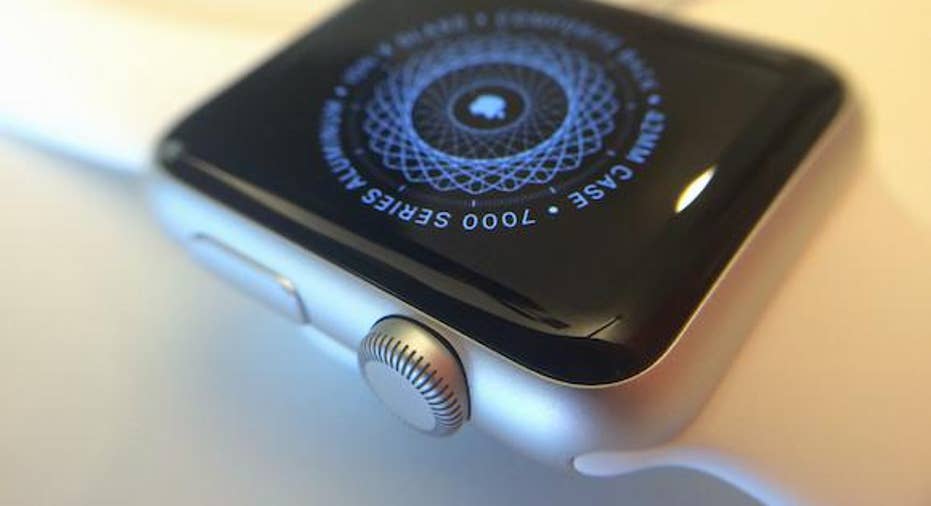Well, That Was Fast: Smartwachesare Now MorePopularThanSwissWatches

Smartwatches have taken a lot of flack since they first debuted -- and there arelegitimatereasonsfor this. The devices are too dependent on smartphones still, many aren't very stylish, some have poor battery life, and many consumers still wonder what problem smartwatches are supposed to to fix.
But with all of their drawbacks, smartwatches are are still chugging along. Global shipments of the devices just surpassed Swiss watches at the end of 2015.
According to Strategy Analytics, 8.1 million smartwatches were shipped in Q4 2015, compared to 7.9 million Swiss watches.That's the first time smartwatches have outpaced Swiss watch shipments, even if it wasn't by all that much.
There are two notable things within the data. The first is that there is significant demand for smartwatches as a replacement for a former technology (traditional watches), despite the segment being very new and still a bit confusing for consumers.
Second, Apple owns the smartwatch market. We already knew thisfrom last year's Canalys data, but it's still good to see new data from an additional source confirm it. Apple held 63% of smartwatch shipment market share in Q4 2015, while its closest competitor, Samsung , had just 16%. All together, Apple and Samsung accounted for 8 out of every 10 smartwatches shipped at the end of 2015.
Here's what Strategy Analytics has to say about that: "The Swiss watch industry has been sticking its head in the sand and hoping smartwatches will go away. Swiss brands, like Tag Heuer, accounted for a tiny 1 percent of all smartwatches shipped globally during Q4 2015, and they are long way behind Apple, Samsung and other leaders in the high-growth smartwatch category."
Things can only go up from hereLess than a year after entering the smartwatch market, Apple is easily outpacing Samsung, which entered several years ago.
What's interesting about this is that right now there is no close competitor for Apple in the smartwatch market. Fitbit still dominates the wearable space with its line of fitness trackers and a few smartwatches, but that lead likely won't hold up for much longer. Apple is expected to overtake Fitbit in wearable shipments soon, according to IDC.
Fitbit is attempting to take on the Apple Watch with its new Blaze smartwatch, but the device doesn't come close to the Apple Watch's functionality, apps, or design.
The question right now for Apple investors isn't whether the company can dominate the smartwatch market, but how long it can keep its lead. More and more tech companies are jumping into the wearable tech space and could cut into some of Apple's smartwatch shipments. To fend them off, Apple will need to innovate quickly with the Apple Watch, adding one or two significant feature improvements each year.
Of course, the company's been doing that for years with the iPhone, but wearables are a different ballgame. There's less space for new hardware, less screen space, and the software needs to be simpler than on a smartphone. We'll get a better idea as to how well Apple's executed on its smartwatch strategy with the next version of the Apple Watch. But for now,the company is expected to maintain its smartwatch market share lead until at least 2019.
The next step for Apple will be to expand from just dominating market share to convincing the 91% of U.S. consumers who don't own smartwatches to buy them. But for now, the company should be satisfied that it's leading the pack in the smartwatch segment, and starting to outpace Swiss watches at the same time.
The article Well, That Was Fast: Smartwachesare Now MorePopularThanSwissWatches originally appeared on Fool.com.
Chris Neiger has no position in any stocks mentioned. The Motley Fool owns shares of and recommends Apple. Try any of our Foolish newsletter services free for 30 days. We Fools may not all hold the same opinions, but we all believe that considering a diverse range of insights makes us better investors. The Motley Fool has a disclosure policy.
Copyright 1995 - 2016 The Motley Fool, LLC. All rights reserved. The Motley Fool has a disclosure policy.



















